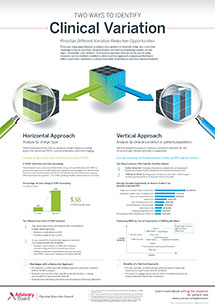Auto logout in seconds.
Continue LogoutHospitals accredited by the Joint Commission did not have significantly better patient outcomes than hospitals inspected by state agencies and those accredited by other organizations, according to a new study published in The BMJ, Stephanie Armour reports for the Wall Street Journal.
Inside CMS' new pilot to evaluate hospital accrediting organizations
Hospital accreditors come under fire
According to Armour, accreditation generally is seen as a sign of higher-quality medical care, and hospitals spend a large amount of money on accreditation. In 2015, the Joint Commission charged hospitals an average of around $18,000 for an inspection and an annual fee of up to $37,000.
However, hospital accreditors have come under fire in recent months. An investigation by the Wall Street Journal found that a number of accredited facilities continued to receive Joint Commission accreditation, despite serious safety violations and other issues at the facilities. The investigation triggered a House Energy and Commerce Committee investigation, and CMS this month announced initiatives to increase its oversight of accreditors and change the way accreditors' performance is reviewed, Armour reports.
Study finds similar outcomes at hospitals accredited by the Joint Commission, and those that aren't
For the new study, Harvard University researchers analyzed the mortality and readmission rates for more than 4.2 million patients who were treated for 15 selected medical conditions or received surgery for six selected surgical conditions at U.S. hospitals.
Overall, the researchers found that hospitals accredited by the Joint Commission did not have significantly lower mortality rates than hospitals inspected by state agencies and those accredited by other organizations.
For instance, the researchers found that the mortality rate among Joint Commission accredited hospitals was 10.2% for the 15 selected medical conditions, compared with 10.6% at hospitals inspected by state agencies. The mortality rates for the six selected surgical conditions were the same at both sets of hospitals, at 2.4%.
When it came to comparing Joint Commission accredited hospitals with those accredited by other organizations, the researchers found that mortality rates for both sets of hospitals were about the same, at 10.1% among Joint Commission accredited hospitals and 10.3% among those accredited by other organizations.
The researchers also found that Joint Commission accredited hospitals had just a slightly lower readmission rate for the selected conditions when compared with hospitals inspected by state agencies, Armour reports. According to the study, the readmission rate among Joint Commission accredited hospitals averaged 22.4% for the 15 selected medical conditions, compared with 23.2% at hospitals inspected by state agencies. Readmission rates for the six selected surgical conditions averaged 15.9% at Joint Commission accredited hospitals, compared with 15.6% at hospitals inspected by state agencies.
Meanwhile, the readmission rates among Joint Commission accredited hospitals and those accredited by other organizations were about the same, at 16% and 15.8%, respectively.
The researchers found that Joint Commission accredited hospitals had slightly lower patient satisfaction scores than those inspected by state agencies, at 3.2 and 3.4, respectively, when adjusted for risk. According to the researchers, patient satisfaction scores among Joint Commission accredited hospitals and those accredited by other organizations were similar, at 3.1 and 3.2, respectively, when adjusted for risk.
Reaction
The researchers wrote, "The lack of meaningful differences in outcomes between accredited and state survey hospitals suggest that a closer examination of the benefits of private accreditation would be useful."
Ashish Jha, director of the Harvard Global Health Institute and a co-author of the study, said, "The wealthy, big hospitals that generally have more resources are more likely to be Joint Commission-accredited, and the thinking is that they have better outcomes. What you find is that it doesn't have a big effect, and it really makes you worry. We've put a lot of faith and resources into accreditation" (Armour, Wall Street Journal, 10/18; Lam et al., The BMJ, 10/18).
Get 1-page cheat sheets on how hospital quality ratings programs work
Download our one page sheets for summaries on the methodology and metric categories used in seven hospital quality rating programs:
Don't miss out on the latest Advisory Board insights
Create your free account to access 1 resource, including the latest research and webinars.
Want access without creating an account?
You have 1 free members-only resource remaining this month.
1 free members-only resources remaining
1 free members-only resources remaining
You've reached your limit of free insights
Become a member to access all of Advisory Board's resources, events, and experts
Never miss out on the latest innovative health care content tailored to you.
Benefits include:
You've reached your limit of free insights
Become a member to access all of Advisory Board's resources, events, and experts
Never miss out on the latest innovative health care content tailored to you.
Benefits include:
This content is available through your Curated Research partnership with Advisory Board. Click on ‘view this resource’ to read the full piece
Email ask@advisory.com to learn more
Click on ‘Become a Member’ to learn about the benefits of a Full-Access partnership with Advisory Board
Never miss out on the latest innovative health care content tailored to you.
Benefits Include:
This is for members only. Learn more.
Click on ‘Become a Member’ to learn about the benefits of a Full-Access partnership with Advisory Board
Never miss out on the latest innovative health care content tailored to you.

